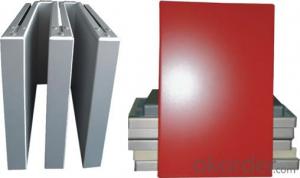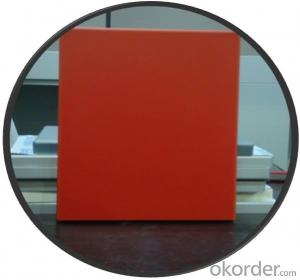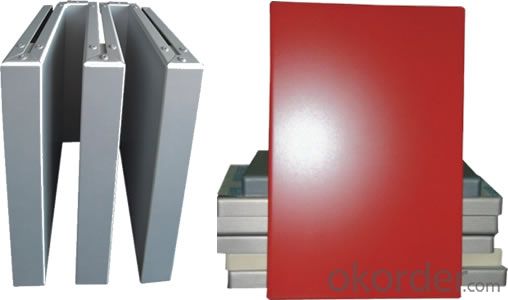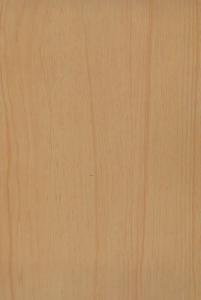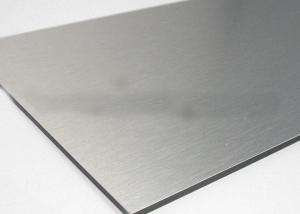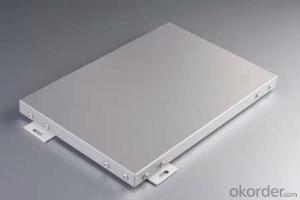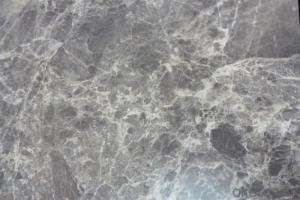Wood Grain Coated Square Aluminum Panel
- Loading Port:
- China Main Port
- Payment Terms:
- TT OR LC
- Min Order Qty:
- -
- Supply Capability:
- -
OKorder Service Pledge
Quality Product, Order Online Tracking, Timely Delivery
OKorder Financial Service
Credit Rating, Credit Services, Credit Purchasing
You Might Also Like
Coated Square Aluminium Panel
Specifications:
Alloy:1xxx,3xxx,8xxx series
Temper: O,F,H111,H112,H12,H14,H16,H18,H22,H24,H26 etc.
Thickness: 0.2mm-150mm
Width: 500mm-2800mm
Length: 500mm-10000mm
Tensile Strength: 110 to 170 MPa
Elongation: >=2%
Standard dimensions: 1219x2438mm, 48''x96''
ISO9001, SGS passed
Competitive price
Professional producing & exporting experience
All kinds of Alloy and size are available
Coated Square Aluminium Panel
Specifications:
Alloy:1xxx,3xxx,8xxx series
Temper: O,F,H111,H112,H12,H14,H16,H18,H22,H24,H26 etc.
Thickness: 0.2mm-150mm
Width: 500mm-2800mm
Length: 500mm-10000mm
Tensile Strength: 110 to 170 MPa
Elongation: >=2%
Standard dimensions: 1219x2438mm, 48''x96''
ISO9001, SGS passed
Competitive price
Professional producing & exporting experience
All kinds of Alloy and size are available
- Q: What are the different forming processes for aluminum coils?
- Aluminum coils can be formed using various methods. These methods include: 1. The most commonly employed technique for forming aluminum coils is hot rolling. It requires heating the aluminum to a high temperature and then passing it between two large rolls to decrease its thickness. This process enables precise control over the coil's thickness and shape. 2. Cold rolling, a similar process to hot rolling, involves cooling the aluminum to room temperature before rolling it. Cold rolling is often preferred for producing coils with a smoother surface finish and stricter tolerances. 3. Continuous casting involves pouring molten aluminum into a continuous casting machine, which generates an uninterrupted strip of aluminum. The strip is then cooled and coiled to form aluminum coils. Continuous casting is commonly used for large-scale production. 4. Extrusion is a process that entails pushing aluminum through a die to create a particular shape or profile. The extruded aluminum is subsequently cooled and coiled to produce aluminum coils. Extrusion is frequently employed to manufacture coils with intricate shapes or profiles. 5. Slitting is a process used to cut aluminum coils into narrower strips. It involves passing the coil through a set of rotating blades that slice it into multiple smaller strips. Slitting is often utilized to produce coils with specific widths or for further processing. These are just a few examples of the various forming processes available for producing aluminum coils. The selection of a process depends on factors such as the desired shape, thickness, and surface finish of the coil, as well as considerations of production volume and cost.
- Q: How do aluminum coils compare to magnesium coils in terms of strength?
- Aluminum coils generally have higher strength compared to magnesium coils. Aluminum is known for its excellent strength-to-weight ratio, making it a popular choice in various industries. It has a higher tensile strength and better resistance to deformation under stress compared to magnesium. Additionally, aluminum has a higher yield strength, which means it can withstand greater loads before experiencing permanent deformation. On the other hand, magnesium is lighter than aluminum, but it tends to have lower strength properties. While magnesium coils might be advantageous in some applications where weight is a critical factor, aluminum coils are generally preferred in terms of strength and durability.
- Q: Can aluminum coils be used in the production of architectural façades?
- Aluminum coils are indeed suitable for the production of architectural façades. Façades made of aluminum are highly favored due to their durability, lightweight characteristics, and aesthetic attractiveness. By incorporating aluminum coils into façade manufacturing, customization becomes effortless, as they can be readily molded and fashioned into different designs and profiles. Moreover, aluminum exhibits resistance against corrosion, rendering it suitable for outdoor use. Furthermore, it possesses exceptional thermal and acoustic insulation properties, thereby enhancing energy efficiency and soundproofing. In conclusion, aluminum coils offer a versatile and efficient choice for the creation of architectural façades.
- Q: Are there any limitations on the anodizing of aluminum coils?
- Yes, there are certain limitations on the anodizing of aluminum coils. Some of the limitations include the size and thickness of the coils, as well as the surface finish and quality of the aluminum. Additionally, the composition and alloy of the aluminum can also affect the anodizing process. It is important to consider these limitations to ensure successful and satisfactory anodizing results.
- Q: Are aluminum coils suitable for gutter systems?
- Yes, aluminum coils are suitable for gutter systems. Aluminum is a popular choice for gutter material due to its durability, lightweight nature, and resistance to rust and corrosion. It is also easy to work with and can be customized to fit various gutter sizes and shapes.
- Q: This question asks about the environmental impact of aluminum coils, including potential effects on the ecosystem and human health.
- <p>Aluminum coils, when produced and used responsibly, have minimal environmental impact. However, improper disposal or manufacturing can lead to pollution. Aluminum production requires significant energy, contributing to greenhouse gas emissions. During manufacturing, if not managed properly, can release harmful substances into the air and water. Yet, aluminum is highly recyclable, reducing its environmental footprint over time. When disposed of improperly, aluminum can contribute to litter and leach harmful substances into the soil and water, affecting wildlife and potentially human health. Responsible recycling and manufacturing practices are crucial to mitigate these effects.</p>
- Q: helicopters rotorblades are made of honeycombed aluminum to give them strength, so isn't it a good idea for automakers to use the same technology to strengthen the frames of autos to make them lesslikely to cave in during a side impact auto accident?
- Cost is everything - if they get enough design margin from a single sheet that is the choice. Especially in fabrication costs. Besides cars are designed to crumple and a honeycomb structure may be too strong to dissipate crash forces as the body deforms in an accident. Aerospace uses that structure for light-weigh performance and can literally eat the extra cost.
- Q: Can aluminum coils be used in kitchen appliances?
- Kitchen appliances can indeed utilize aluminum coils. Due to its remarkable thermal conductivity and resistance to corrosion, aluminum is extensively employed in the production of kitchen appliances. It finds frequent application in refrigerators, air conditioners, and other devices that necessitate efficient heat transfer. Lightweight and enduring, aluminum coils effectively disperse heat, rendering them ideal for a wide array of kitchen appliances.
- Q: This question asks for a comparison of the benefits and drawbacks associated with using aluminum coil.
- <p>Aluminum coil offers several advantages such as high strength-to-weight ratio, corrosion resistance, and excellent thermal and electrical conductivity. It is also cost-effective and easy to form, making it ideal for various applications like construction, automotive, and electrical industries. However, it has some disadvantages, including lower strength compared to steel, potential for galvanic corrosion when in contact with dissimilar metals, and a higher likelihood of denting or denting. Additionally, aluminum's recycling process can be energy-intensive, which may impact its environmental sustainability.</p>
- Q: What are the storage life and shelf life of aluminum coils?
- Various factors, such as storage conditions and the specific type of aluminum alloy, can influence the storage life and shelf life of aluminum coils. Generally, aluminum coils have a relatively long lifespan. Concerning storage life, aluminum coils can be stored for an extended period without significant quality or performance degradation. However, it is crucial to store them in a dry, well-ventilated area to prevent corrosion. Moisture can cause oxidation and corrosion, which may compromise the integrity and durability of the aluminum coils. Regarding shelf life, aluminum coils can remain in good condition and retain their functionality for a prolonged period if stored correctly. The exact shelf life depends on the specific application and intended use of the aluminum coils. To ensure the longevity of aluminum coils, it is advisable to adhere to the manufacturer's storage and handling guidelines. Regular inspections and maintenance can also help detect any signs of corrosion or damage, enabling appropriate measures to prevent further deterioration.
Send your message to us
Wood Grain Coated Square Aluminum Panel
- Loading Port:
- China Main Port
- Payment Terms:
- TT OR LC
- Min Order Qty:
- -
- Supply Capability:
- -
OKorder Service Pledge
Quality Product, Order Online Tracking, Timely Delivery
OKorder Financial Service
Credit Rating, Credit Services, Credit Purchasing
Similar products
Hot products
Hot Searches
Related keywords
